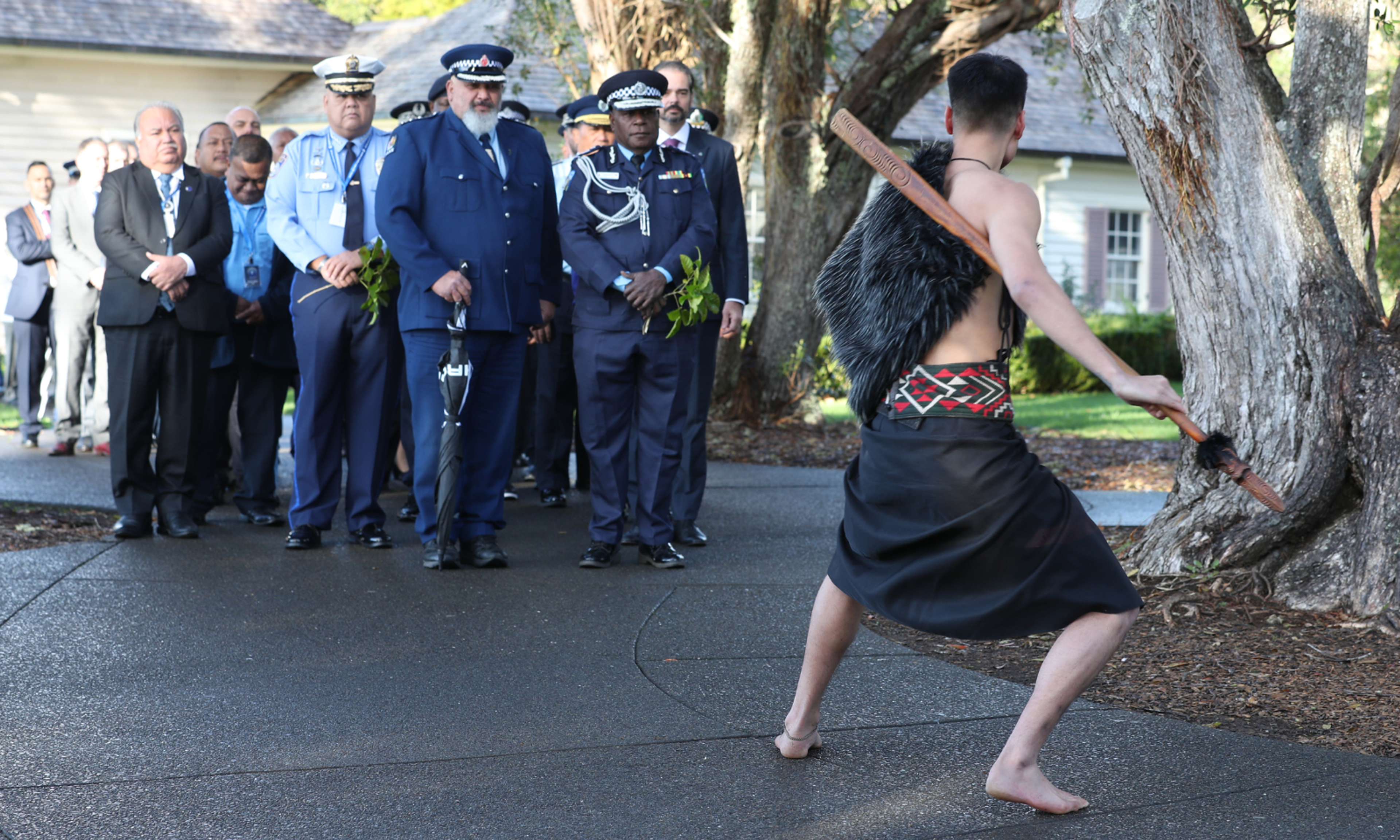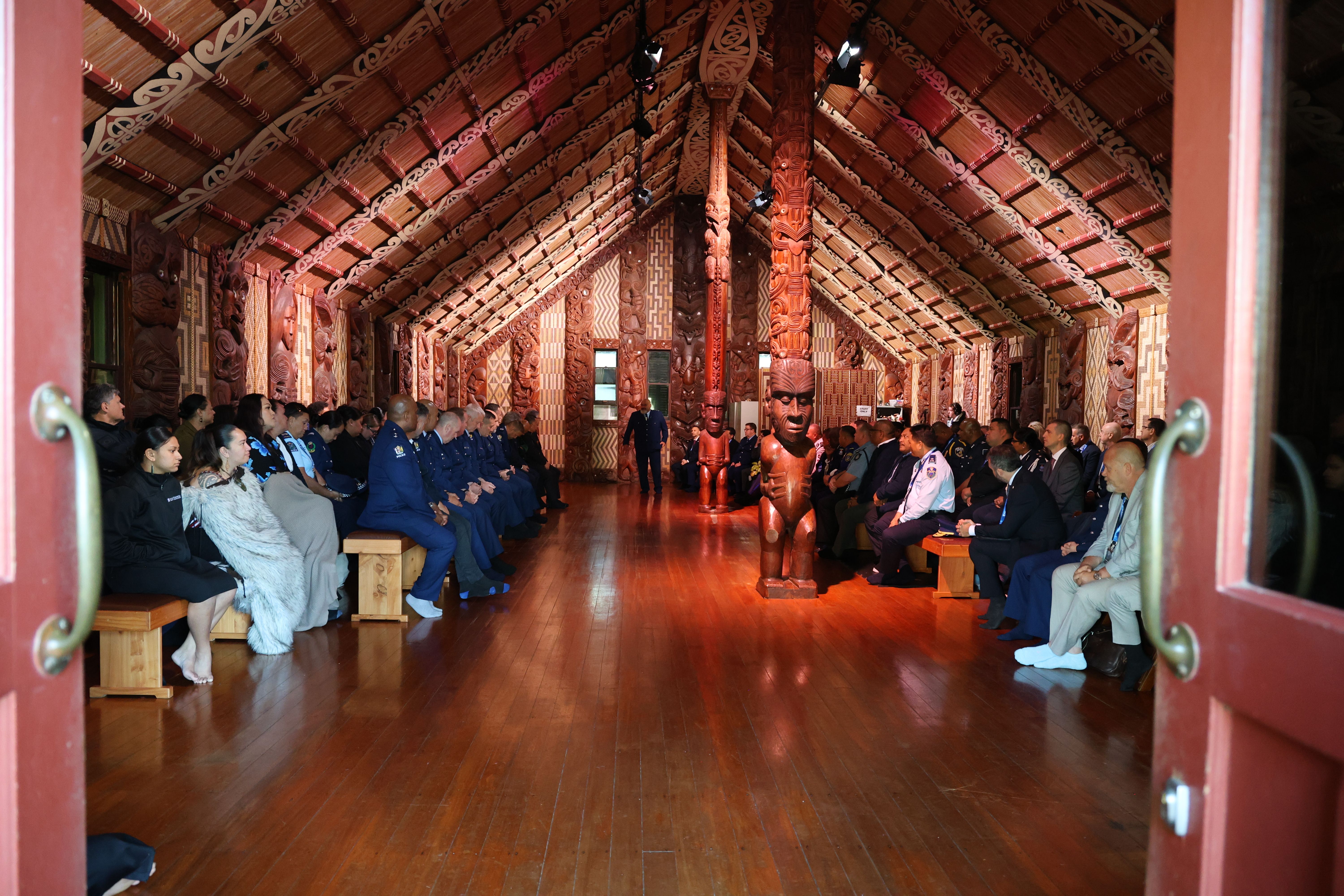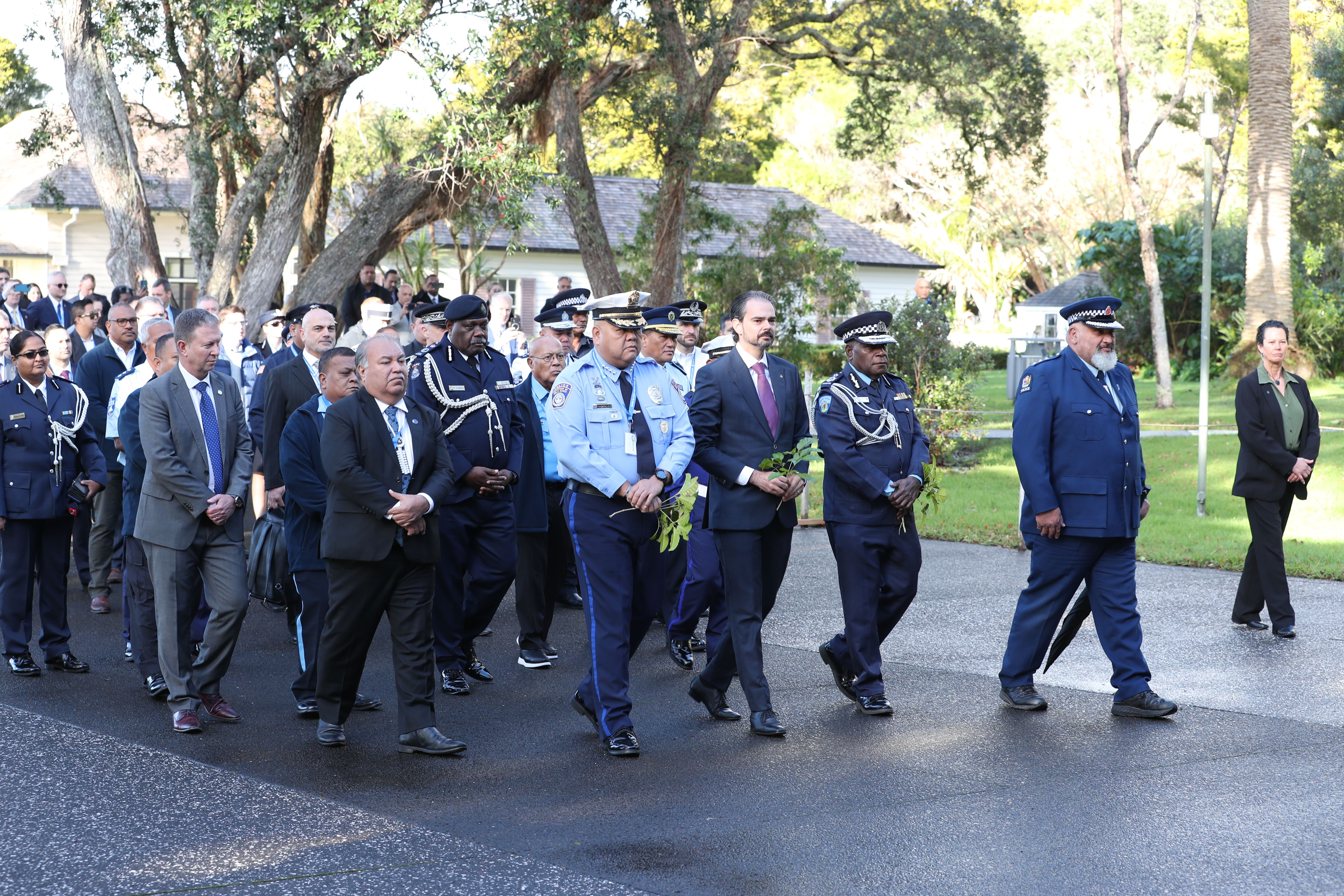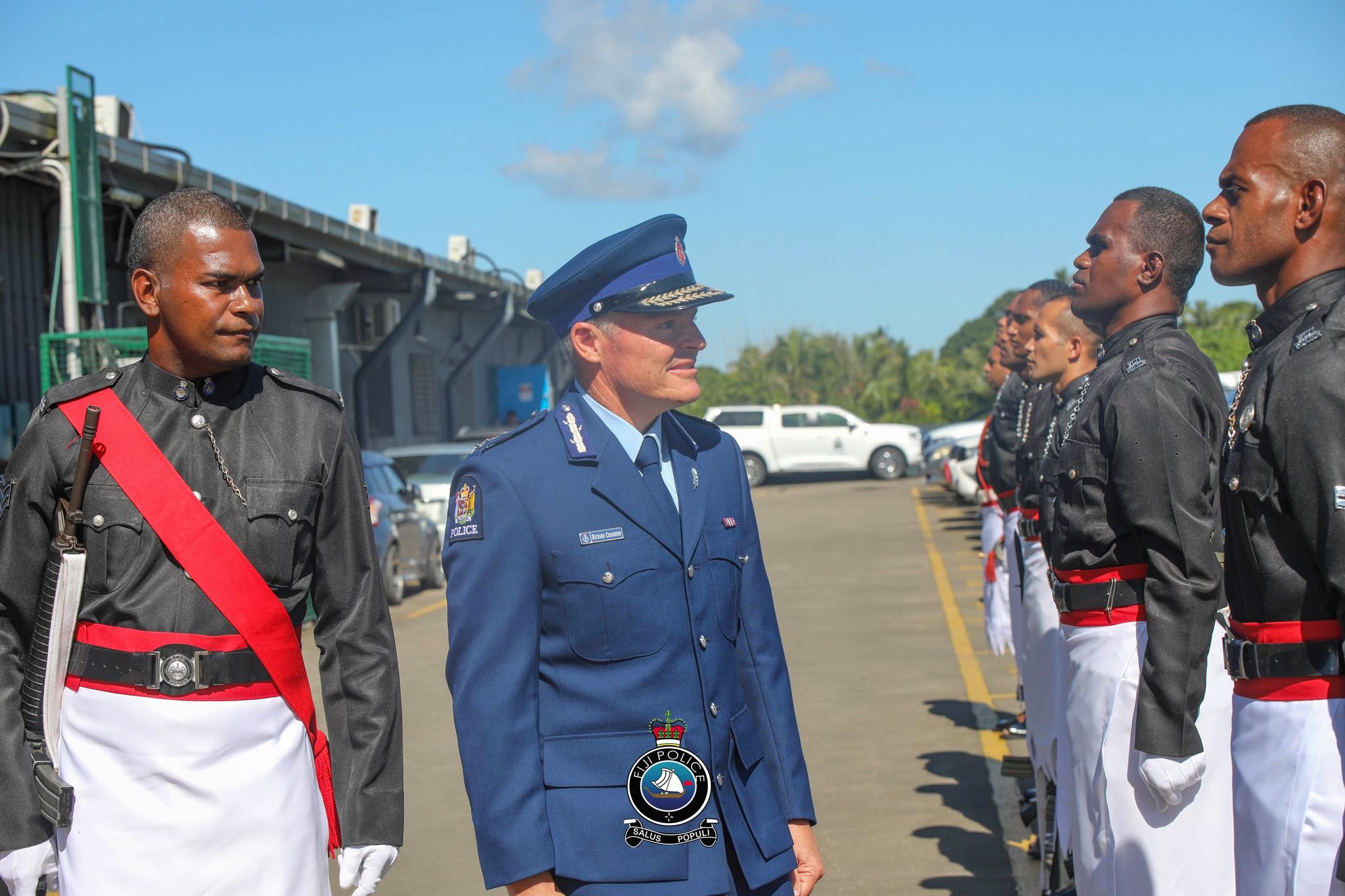

Police chiefs from across the Pacific arrive at Waitangi.
Photo/Supplied
Pacific police chiefs meet in NZ to tackle regional issues
Leaders warn sophisticated drug-trafficking networks and returning criminal deportees are testing law enforcement capabilities in the region.




Moana Pasifika end Lautoka curse to win 'Battle of the Pacific'



Budget relief buys time for Ōtara-Papatoetoe, but pressures remain


Moana Pasifika end Lautoka curse to win 'Battle of the Pacific'

Police leaders from across Oceania are gathering in Waitangi this week to address increasing challenges in the region, especially organised crime and the return of deportees.
Richard Chambers, New Zealand’s Police Commissioner, says it is a privilege to host the 52nd Pacific Islands Chiefs of Police Conference and discuss critical regional issues.
“The common theme coming through this week and even when I visited the Pacific, was the threat to our region around transnational organised crime,” he tells William Terite on Pacific Mornings. “And coming with that are the enablers … things like violence and technology, including cyber activity and corruption.”
Chambers says there’s a need to tackle the tough issues together among police commissioners to improve safety and security in the Pacific.
“So we’ve got to put the hard issues on the table and talk about what it is that we as commissioners can focus on and support each other on if we’re going to reduce the threat and ensure that the safety and security of the Pacific region is the best that it can be.”
In May, police in Fiji seized nearly five kilograms of methamphetamine at Nadi airport. A recent report from Tonga shows that domestic violence cases have tripled in the 2023-24 financial year, and Class A drug seizures were 89 times higher than the previous year.

Pacific Chiefs of Police inside the marae at Waitangi. Photo/Supplied
Chambers warns that drug cartels are employing increasingly sophisticated methods to target Pacific nations, including the use of submarines to evade law enforcement.
“They’re very sophisticated … narco-subs is just one technique that criminal networks will deploy to get product from A to B, and the reality is that New Zealand, Australia, and the Pacific region is a lucrative market and they will do anything to get their product through.”
Chambers also addressed the challenges posed by deportees to small island nations.

Inspector Riki Whiu, of Northland police, leads, from right, Secretary General of Interpol Valdecy Urquiza, Vanuatu Police Commissioner Kalshem Bongran and Northern Mariana Islands Police Commissioner Anthony Macaranas arrive at Waitangi for the summit. Photo/Supplied
“We've had 501 deportees coming in from Australia. They've had an impact here in our country, so it's not new that those who have committed crimes and have been removed from a country, they go back wherever that is, New Zealand, Australia, the Pacific … and that's another reason I work so closely with my Pacific Chief colleagues is to understand the pressures that they may face when it comes to deportees.”
Jose Sousa-Santos, an associate professor of practice at the University of Canterbury's Pacific Regional Security hub, says that while only a small number of deportees are involved in criminal activity, issues such as lack of reintegration, language barriers, and limited job prospects contribute to the growing problem.
"[They have] started to reach back to the criminal counterparts from the countries from which they were deported,” he tells RNZ Pacific.
“These deportees brought a new set of tactics ... which Pacific law enforcement was not used to dealing with, and they added aspects and an evolution to drug-smuggling activities and criminal enterprise in the region which previously didn't exist."
An ongoing relationship
Chambers, who is just eight months into the role, has already established connections with police heads in Fiji, Sāmoa, and the Cook Islands.
He says New Zealand’s role is to listen and provide support.
“It’s been really important for me to get to their places, to talk to them on a one-on-one basis, understand what their challenges are, and how New Zealand can help. So the relationships are very, very strong and I’m very, very proud of the contribution that New Zealand Police can make to the work that they do in the Pacific.”
He rejects suggestions that New Zealand acts as the “big brother” of the region, preferring to see the relationship as that of cousins supporting one another.
“I would never describe us as being the big brother … but being a cousin and making sure that we support each other in our respective roles.”

NZ Police Commissioner Richard Chambers met with Fiji police in May. Photo/Fiji Police
Chambers also insists that the conference is focused on achieving practical results. “We’re here to do business, we’re here to have the hard conversations, and when we leave at the end of tomorrow, we want to head home … to ensure that we have a bit of a plan.”
Looking ahead, Chambers believes the role of police in the Pacific will become increasingly important amid rising global tensions.
“How lucky are we to live in this part of the world? When you look at all the global tensions, the geopolitics, I wouldn’t want to be in any part of the world other than the Pacific region,” he says. “We can be so proud of what we are and who we are, and we need to try and keep it that way and continue to work hard.”
The last time the conference was hosted in New Zealand was in 2014.
Listen to Richard Chambers' full interview below.